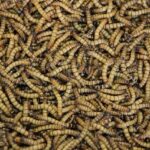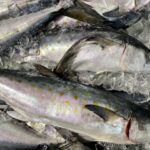If you are looking for a diet plan that can help you lose weight, you may want to consider an eat like a bear diet. The diet plan emphasizes high protein, fats, and carbohydrates. Fried chicken and fish are not bear-friendly. Avoid high-fat fried proteins. You should also avoid salads made with iceberg lettuce, which is simply a carrier for salad dressing. Instead, look for nutrient-dense lettuce instead.
Weight loss
The Eat Like a Bear diet promotes a “mini fast” between meals, which allows the body to regenerate and improve metabolism. The author of the book is a success story herself, with hundreds of testimonials from people who’ve lost weight while following the program. The Eat Like a Bear diet includes six meals a day, with the exception of the last one, which is considered a high-carb, high-calorie meal.
The Eat Like a Bear diet is particularly effective for overweight people, but it can also help slim down otherwise-thin people. It works best in conjunction with an exercise routine, as losing body fat is hard without regular exercise. Many overweight people cannot afford to join a gym and avoid exercise altogether. By avoiding carbohydrates, you’ll feel full while burning fat, and your body will respond positively. In addition to weight loss, you’ll be better able to control your blood sugar levels and maintain muscle mass.
Although the Eat Like a Bear diet requires you to skip alcohol, it is not bad for losing weight. You can replace your alcohol intake with foods that are high in antioxidants and vitamins. You’ll feel lighter after the first few pounds are off, but the weight loss may be slow after that. In addition to not providing a varied diet of fruits, vegetables, and fats, the Eat Like a Bear diet is not recommended for long-term use.
Heart disease
The Eat Like a Bear Diet has a lot of drawbacks, including its restrictive nature and risk for heart disease. While the diet may be effective for short-term weight loss, it may have negative consequences for your health if you continue to follow it for a long period of time. If you’re interested in learning more about the diet, you should consult a dietitian who can give you a proper assessment of your needs.
In one study, researchers from the University of Washington fed adult bears two different diets just before hibernation. They compared the results of their diets during the months of May through October, and then checked their health in the spring. The high-fat diet led to a similar level of insulin and cholesterol in the bears. Although these studies are only partial, they show that high-fat diets may be healthier than low-fat diets.
Diabetes
The Eat Like a Bear diet is designed to help you lose weight and maintain muscle mass. It follows two main tenets: you eat less and eat more often, and you should limit your eating time to five hours per day. This low-carb diet will have a beneficial effect on your health, but you should be careful about the amount of carbohydrates you eat. This type of diet can also lead to health problems, including heart disease, stroke, and low blood sugar levels.
The Eat Like a Bear diet is especially beneficial to overweight people, but it can help even thin people lose weight. However, it works best when combined with an exercise program. For example, many people cannot afford to join a gym, and so end up avoiding exercise. By restricting carbohydrates, the Eat Like a Bear diet can help you lose weight and keep muscle. However, it is important to follow the diet’s guidelines, as cutting too many carbs can lead to fatigue, dizziness, and other health issues.
The Eat Like a Bear diet is not a complete ban on fast food, but it can help you lose weight quickly. While you won’t be able to gain back the weight that you lost during the first few weeks, you will notice some positive changes and see results in a few weeks. However, once those first pounds come off, your weight loss will slow down. Despite the positive effects, this diet is not a long-term solution, as it lacks a variety of nutrients.
Stroke
The eat like a bear diet for stroke is a new diet recommended by doctors in Japan. A previous study found that the diet helped stroke survivors recover faster than those on a standard diet. The diet was based on a balanced diet of fruits, vegetables, whole grains, and low-fat dairy products. Researchers found that this diet also reduced stroke risk factors. However, this diet plan was expensive, and many caregivers were unable to afford it.
The study’s authors conducted a self-report questionnaire with information about the diet from stroke survivors, health professionals, and nutrition students. They also collected data about the participant’s own perceptions of stroke and the effects of diet on recovery. The study also examined the impact of dietary changes on eating behaviors, as well as dietary intake on stroke risk. The researchers also conducted a case study of nine stroke survivors to determine whether the diet was beneficial for recovery.
Although this study only included a small group of stroke survivors in Nairobi, the results point to the benefits of eating a healthy diet for stroke recovery. Despite the many benefits of a healthy diet, LMICs face structural challenges when trying to implement a dietary change. Lack of access to health care and nutritional specialists make a healthy diet difficult to implement. However, the EAT LIKE A BEAR diet can help patients recover faster.
High-carb diet
A High-Carb diet is an excellent option for weight loss. Typically, this diet is comprised of 65 to 85 percent carbohydrates and has been linked to weight loss, reduced risk of cardiovascular disease, increased energy and a longer lifespan. In addition to helping you lose weight, carbohydrates help you burn more fat and increase muscle mass, which are all great for preventing and managing certain ailments. While it is tempting to follow a low-carb diet plan, it’s important to know the truth about what your body needs in terms of nutrients.
Besides increasing carbohydrate intake, a High-Carb diet can cause the intake of fat and protein. The standard diet already contains a large percentage of fat and carbohydrates, so increasing the amount of these two food groups will likely increase your overall calorie intake. Moreover, the increase in carbohydrates is likely to come from refined or processed carbohydrate sources. In addition, these foods are often filled with unhealthy saturated and trans fats.
Carbohydrates are our body’s primary energy source. The energy they provide are converted into glucose, which facilitates vital biochemical reactions in the body. While proteins and fats are also important players in energy metabolism, a high-carb diet is a more balanced diet for optimal health. If you are feeling lethargic, eating high-fiber carbohydrates is a great way to boost energy levels. If you’re worried about bloating, don’t eat too many processed sugary carbs.
Caffeine intake
The eat like a bear diet has some key differences from a normal, balanced diet. For example, you should avoid coffee, as it affects Bears’ physiological factors, such as blood pH and blood sugar levels. A normal blood pH is 7.420, whereas an acidic pH is below this value. In addition, a typical bear’s diet consists of a small amount of complex carbohydrates, like whole grain pasta. To eat like a bear, you should eat several meals per day, with occasional snacks in between.
Your meals should contain a balance of proteins, fats, and carbohydrates. Among the most important foods to include in a great bear meal are fresh vegetables, chicken, and black beans. A great bear meal would also contain a protein-rich oil-based dressing. When choosing lettuce, you should avoid iceberg lettuce because it serves as a carrier for salad dressing, and instead choose a nutrient-dense lettuce instead.









